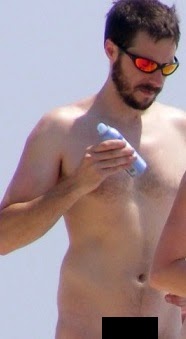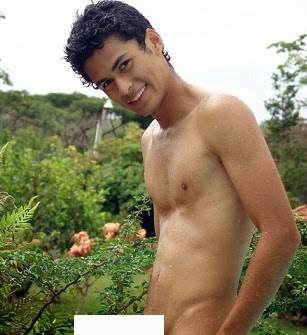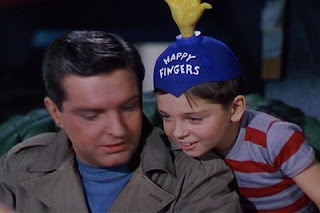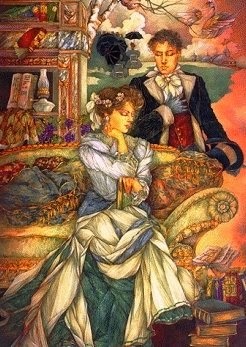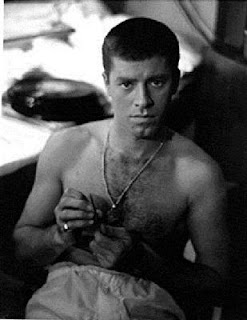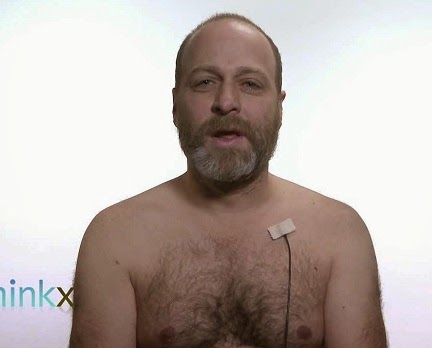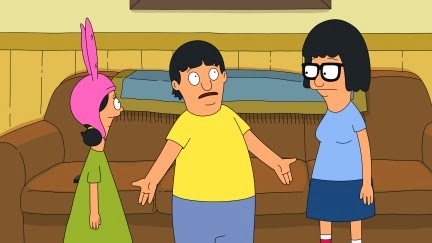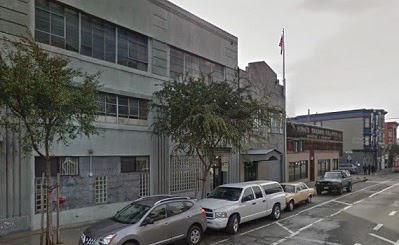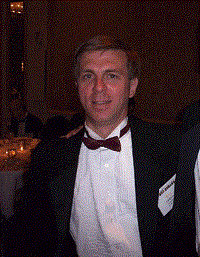In a jaw-dropping development, The Middle, the most aggressively heterosexist tv program since Fringe, featured not one but two gay references in Wednesday night's episode.
In case you haven't noticed, the long-running series is about a dysfunctional working-class family in "The Middle," a small town in Indiana: dour dad Mike, perpetually-frazzled mom Frankie, college-aged Axl, over-exuberant high schooler Sue, and weird junior high schooler Brick.
In six seasons, there have been no references to gay people or same-sex desire or relationships, not one, except for an running gag about the swishy stereotype Brad, who doesn't realize that he's gay -- no one does except Mike and Frankie.
Wednesday night's episode, "Flirting with Disaster," had three plotlines.
1. Sue and Brick go to a science fiction convention. No gay content, but you do get to see the muscular Michael Foster, who has variously played Conan, a bouncer, a Muscle-Bound Writer, and a Gay Protester.
2. Mike's father-in-law Tag asks for help with his upcoming driver's test.
Mike: "When you see someone carrying a white cane, what does it mean?"
Tag: "That he's gay."
(Mike glares at him.)
Tag: "What? What do they want to be called now?"
Mike: "No, it means that he's blind!"
Tag: "Blind and gay? That's going to be tough!"
Ok, not bad. The elderly Tag comes across as slightly homophobic, but Mike doesn't.
3. Axl (Charlie McDermott, top photo), who I haven't been following much since he stopped hanging around in his underwear, comes home from college with a hot friend we've never heard of before, Finn (Matthew Atkinson, left).
Frankie flirts with him, and relishes her ability to attract Cute Young Things, until Axl tells her that Finn is "granny bait," often using his attractiveness to get special favors from elderly women.
Ok, it's not what you're thinking -- Axl means extra helpings of tater tots from the lunch lady.
Horrified at being labeled a "granny," Frankie decides that she'll go back to flirting with the elderly security guard at the bank: "At least she thinks I'm hot."
A throwaway line playing on our sexist presumption that security guards are always male. But it also reveals that there are indeed gay people in Orson, Indiana, that Frankie is aware of them, and that she is completely comfortable being the object of same-sex desire.
None of the kids were around during either of the scenes; they remain unaware of the existence of gay people. But two references in a single episode of a series that has thus far being utterly silent? Cause for celebration.
See also: Brock Ciarlelli, the Uncle Tom of The Middle; Axl in Underwear: The Middle.
In case you haven't noticed, the long-running series is about a dysfunctional working-class family in "The Middle," a small town in Indiana: dour dad Mike, perpetually-frazzled mom Frankie, college-aged Axl, over-exuberant high schooler Sue, and weird junior high schooler Brick.
In six seasons, there have been no references to gay people or same-sex desire or relationships, not one, except for an running gag about the swishy stereotype Brad, who doesn't realize that he's gay -- no one does except Mike and Frankie.
Wednesday night's episode, "Flirting with Disaster," had three plotlines.
1. Sue and Brick go to a science fiction convention. No gay content, but you do get to see the muscular Michael Foster, who has variously played Conan, a bouncer, a Muscle-Bound Writer, and a Gay Protester.
2. Mike's father-in-law Tag asks for help with his upcoming driver's test.
Mike: "When you see someone carrying a white cane, what does it mean?"
Tag: "That he's gay."
(Mike glares at him.)
Tag: "What? What do they want to be called now?"
Mike: "No, it means that he's blind!"
Tag: "Blind and gay? That's going to be tough!"
Ok, not bad. The elderly Tag comes across as slightly homophobic, but Mike doesn't.
3. Axl (Charlie McDermott, top photo), who I haven't been following much since he stopped hanging around in his underwear, comes home from college with a hot friend we've never heard of before, Finn (Matthew Atkinson, left).
Frankie flirts with him, and relishes her ability to attract Cute Young Things, until Axl tells her that Finn is "granny bait," often using his attractiveness to get special favors from elderly women.
Ok, it's not what you're thinking -- Axl means extra helpings of tater tots from the lunch lady.
Horrified at being labeled a "granny," Frankie decides that she'll go back to flirting with the elderly security guard at the bank: "At least she thinks I'm hot."
A throwaway line playing on our sexist presumption that security guards are always male. But it also reveals that there are indeed gay people in Orson, Indiana, that Frankie is aware of them, and that she is completely comfortable being the object of same-sex desire.
None of the kids were around during either of the scenes; they remain unaware of the existence of gay people. But two references in a single episode of a series that has thus far being utterly silent? Cause for celebration.
See also: Brock Ciarlelli, the Uncle Tom of The Middle; Axl in Underwear: The Middle.







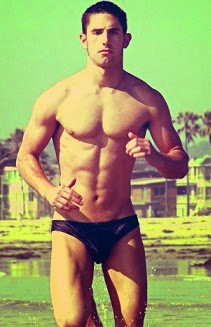


.jpg)
















